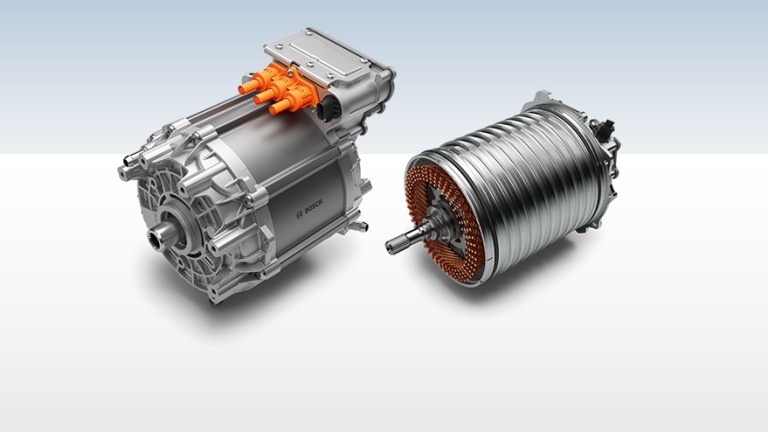Why Do Major Enterprises Still Use Tape Storage?

The world of data storage has undergone significant changes. With cloud computing, SSDs and flash storage are becoming dominant solutions. Despite these advancements, major enterprises rely on tape storage for data management. This may seem surprising, but when you look at the core benefits of tape storage, it becomes clear why it’s emerging as a preferred choice for big organizations.
From cost-efficiency to security, tape storage is becoming a strong contender in enterprise backup and archival strategies. Let’s explore the key reasons behind the ongoing relevance of tape-driven technology:
1. Cost-Effectiveness For Large Scale Data Storage
One of the biggest reasons enterprises still trust tape storage is its affordability. It becomes more important when dealing with vast amounts of data. So, storing information on tape is important compared to cloud and SSD solutions.
Source: KnowledgeAcademy
- In contrast with cloud-based storage with subscription costs, tape storage offers room for a one-time investment with minimal maintenance expenses.
- Tapes have an exceptionally long lifespan. It reduces the need for frequent replacements.
- Energy consumption for tape-based storage is far lower than that of spinning hard drives or data centers.
For organizations managing petabytes of archival data, the financial savings provided by tape storage are unmatched.
2. Unmatched Data Longevity & Durability
Data retention is a key priority for enterprises. It’s more common in banking, healthcare, and government sectors, which have needed to store information for decades. Tape storage excels in long-term data preservation. It makes tape technology a preferred choice for archival purposes.
- In contrast with hard drives that may fail due to mechanical issues, tape technology doesn’t degrade quickly and can survive in harsh storage conditions.
- Tape cartridges aren’t constantly powered. It reduces wear and tear over time.
- The risk of data corruption is minimal. It ensures consistent data integrity and long-term storage.
3. Security Advantages: Protection Against Cyber Threats
Currently, cyberattacks, ransomware, and data breaches are rampant. Enterprises must prioritize secure storage solutions. Tape storage provides you with unique advantages. These are inherently immune to cyber threats due to their offline nature.
What else you get:
- Hackers and ransomware attacks target online storage systems, but tape backups always remain air-trapped. It makes them inaccessible to cybercriminals.
- Tapes can also be physically isolated from other networks. It eliminates the risks associated with malware or unauthorized access.
- Sometimes, encryption, write-once, or read-many capabilities further increases data security.
4. Scalability To Handle Growing Data Demands
With enterprises generating exabytes of data annually, scalable storage is a necessity. Tape technology offers an efficient way to expand storage capacity without breaking the bank.
- Tape libraries can easily scale up to accommodate growing data needs without complex upgrades.
- Tape cartridges are compact. Enterprises can store vast amounts of data without consuming excessive physical space.
- In contrast with cloud services, tape systems allow for cost-effective expansion.
5. Eco-Friendly & Energy-Efficient Storage Solution
Sustainability is becoming a major concern for enterprises, with businesses actively seeking energy-efficient storage options. Tape storage significantly reduces power consumption, making it an environmentally friendly alternative.
- Unlike data centers and HDD-based storage that require constant power, tapes remain inactive until accessed, reducing energy usage by up to 95%.
- Tape-based storage’s carbon footprint is substantially lower than cloud data centers that rely on massive cooling systems.
- Enterprises aiming for greener IT strategies find tape storage a sustainable, long-term solution.
With governments and corporations prioritizing eco-conscious policies, tape storage aligns with modern sustainability goals while offering top-tier data protection.
6. Reliability In Disaster Recovery & Compliance
For enterprises, business continuity and compliance are critical concerns. Tape storage plays a vital role in disaster recovery planning by ensuring data is securely backed up and recoverable in emergencies.
Source: Resolver
- Many industries must comply with strict data retention regulations (such as GDPR, HIPAA, and SOX), and tape helps businesses meet these requirements.
- Tapes can be stored offsite in secure vaults, protecting against natural disasters, cyberattacks, and human errors.
- Even in worst-case scenarios, businesses can restore operations quickly using tape backups, preventing data loss and financial damages.
Tape remains an essential safeguard against potential disruptions for organizations handling mission-critical data.
Final Thoughts: Tape Storage Is Here to Stay
Despite rapid flash storage and cloud computing advancements, tape storage remains an indispensable solution for major enterprises. It offers an unmatched combination of cost efficiency, durability, security, scalability, and sustainability—all essential in today’s data-driven world.
Tape storage remains a reliable and future-proof solution for businesses dealing with large-scale data archiving, disaster recovery, and compliance requirements. As technology evolves, modern LTO tape innovations further enhance its storage capabilities, ensuring that it will continue to play a crucial role in enterprise IT strategies.
Would your business benefit from incorporating tape storage into its long-term data strategy? The answer is a resounding yes—especially if you value security, cost savings, and long-term reliability.










